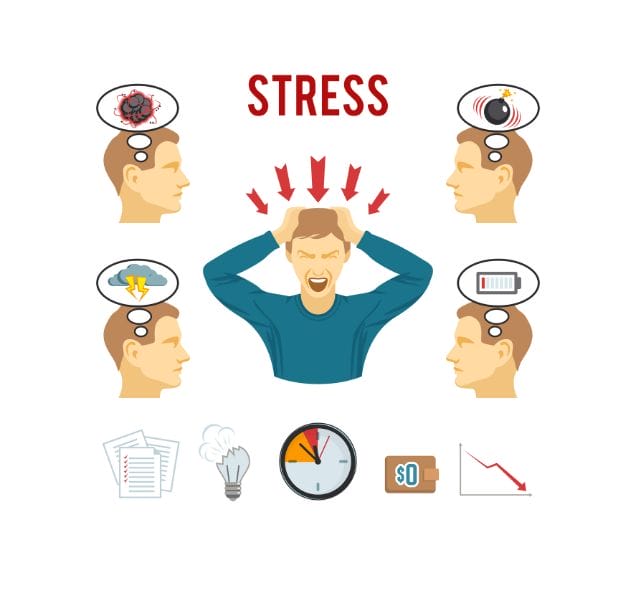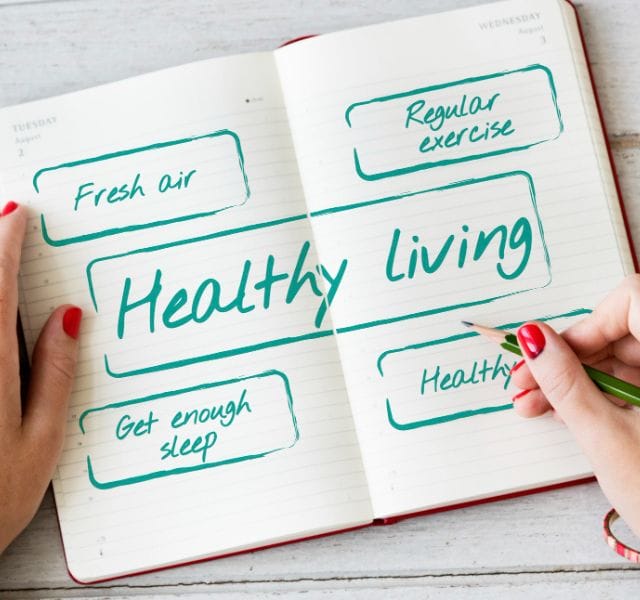
Table of Contents
- Introduction to Stress-Free Living
- Identifying Sources of Stress in Your Life
- Strategies for Managing and Reducing Stress
- Creating a Healthy Work-Life Balance
- The Importance of Self-Care and Mindfulness
- Building a Support Network
- Incorporating Relaxation Techniques into Your Daily Routine
- Letting Go of Perfectionism and Embracing Imperfection
- Dealing with Unexpected Stressful Situations
- Conclusion: Achieving
- FAQS
Introduction to Stress-Free Living
Welcome to the ultimate guide to stress-free living in 2024! In this fast-paced, ever-evolving world, finding inner peace and tranquility can feel like a daunting task. But fear not! We’re here to help you navigate the chaos and discover practical strategies for achieving a calmer, more balanced life.
Picture this: waking up each morning feeling refreshed and energized, ready to take on whatever challenges come your way. Imagine having the tools and mindset to handle stress with ease, allowing you to fully embrace each moment without being overwhelmed by worry or anxiety.

Living a stress-free life is not just a lofty dream; it’s an achievable reality. By identifying the sources of stress in your life and implementing effective coping mechanisms, you can create a harmonious existence that nurtures your well-being.
So buckle up and get ready for an enlightening journey towards serenity and fulfillment. Let’s dive into our ultimate guide to stress-free living in 2024!
Identifying Sources of Stress in Your Life

Identifying Sources of Stress in Your Life
Life can often feel like a whirlwind, with demands coming at us from all directions. It’s important to take a step back and identify the sources of stress in our lives so that we can effectively manage them. One common source of stress is work-related pressures. Deadlines, long hours, and demanding bosses can all contribute to feelings of overwhelm.
Another source of stress may be personal relationships. Difficult dynamics with family members or friends can leave us feeling drained and anxious. Financial worries are also a major cause of stress for many people. The pressure to meet bills and save for the future can weigh heavily on our minds.
In addition, technology overload has become increasingly prevalent in today’s society. Constant notifications, emails piling up in our inbox, and the pressure to always be connected can create unnecessary stress.
It’s important to take inventory of these sources of stress regularly so that we can address them head-on. By recognizing what triggers our anxiety, we have a better chance at finding effective strategies for managing it.
Remember: self-awareness is key when it comes to identifying the sources of stress in your life! Keep an open mind as you reflect on your daily experiences and interactions – this will help you gain insight into what truly causes tension within you
Strategies for Managing and Reducing Stress
Strategies for Managing and Reducing Stress
When it comes to managing and reducing stress, everyone has their own unique approach. What works for one person may not work for another, so it’s important to find strategies that resonate with you personally. Here are a few suggestions to help you navigate the ups and downs of daily life:

1. Prioritize self-care: Taking care of yourself is crucial in managing stress levels. Make time for activities that bring you joy and relaxation, whether it’s going for a walk in nature, practicing yoga, or indulging in a hobby.
2. Practice mindfulness: Mindfulness involves being fully present in the moment without judgment. This can be achieved through meditation, deep breathing exercises or simply taking a few minutes each day to pause and observe your surroundings.
3. Set boundaries: Learning to say no when necessary is essential in maintaining balance and avoiding overwhelm. Don’t be afraid to communicate your limits and protect your personal space.
4. Time management techniques: Effective time management can greatly reduce stress levels by helping you prioritize tasks and avoid procrastination. Break down big projects into smaller manageable tasks, use calendars or planners to stay organized, and don’t forget to schedule breaks!
5.
Take care of your physical health: Regular exercise releases endorphins which elevate mood and reduce stress hormones such as cortisol. Additionally, eating a balanced diet rich in fruits, vegetables,and whole grains will provide essential nutrients needed for optimal wellbeing.
Remember that finding what works best for you may take some trial-and-error experimentation.
Stress reduction is an ongoing process.
Wherever possible seek out professional advice from therapists,counselors or coaches who specialize on this topic.
Creating a Healthy Work-Life Balance
Creating a Healthy Work-Life Balance

In today’s fast-paced and demanding world, finding a healthy work-life balance has become increasingly important. Balancing the demands of work with personal life can be challenging, but it is essential for our overall well-being and happiness.
One key aspect of creating a healthy work-life balance is setting boundaries. It’s crucial to establish clear limits between your professional and personal life. This means defining specific working hours and sticking to them as much as possible. Avoid checking emails or taking calls outside of these designated times, allowing yourself time to recharge and focus on other aspects of your life.
Another strategy for achieving a healthy work-life balance is prioritization. Learn to identify which tasks are truly important and need immediate attention, while letting go of less critical ones that can wait. By focusing on what truly matters, you can avoid feeling overwhelmed by an ever-growing to-do list.
It’s also vital to take breaks throughout the day. Incorporate short moments of relaxation into your schedule such as going for a walk, practicing deep breathing exercises or enjoying a quick mindfulness meditation session. These small pauses in your day can help reduce stress levels and increase productivity when you return to work.
Additionally, make sure you allocate time for activities that bring you joy and fulfillment outside of the office. Whether it’s pursuing hobbies, spending quality time with loved ones, or engaging in physical exercise – carve out dedicated slots in your calendar for these non-work-related endeavors.
Don’t forget about self-care! Prioritize taking care of yourself physically and mentally through activities like regular exercise, proper nutrition, getting enough sleep each night,and engaging in practices that promote relaxation such as yoga or reading a book before bed.
By implementing these strategies consistently over time,you’ll be able to create harmony between your professional responsibilitiesand personal life,resultingin amore fulfillingand satisfying existence where stress takesa backseat.
Stayingmindfulofyourwork-lifedistributionisessential toachievingstress-free livingin 2024and beyond
The Importance of Self-Care and Mindfulness
The Importance of Self-Care and Mindfulness
Taking care of yourself is not a luxury, it’s a necessity. In our fast-paced world, it’s easy to neglect our own needs in favor of meeting the demands of work and family. But self-care is crucial for maintaining good mental and physical health.
Self-care can take many forms – from taking time out to relax and unwind, to engaging in activities that bring you joy. It’s about putting yourself first sometimes and making sure your own needs are met.
Mindfulness also plays a key role in stress-free living. By practicing mindfulness, you can learn to live in the present moment, rather than constantly worrying about the past or future. This can help reduce anxiety and promote a sense of calm.
Incorporating self-care into your daily routine doesn’t have to be complicated or time-consuming. It can be as simple as taking a few moments each day to practice deep breathing exercises or going for a walk in nature.
Remember, self-care isn’t selfish – it’s necessary for your overall well-being. So make it a priority to carve out time for yourself each day, even if it’s just for a few minutes. Your mind and body will thank you!
Building a Support Network
Building a Support Network

In our fast-paced and ever-changing world, having a strong support network is crucial for maintaining a stress-free lifestyle. Surrounding yourself with positive and supportive individuals can provide the encouragement and assistance you need when facing challenging times.
One way to build a support network is by nurturing existing relationships. Cultivating meaningful connections with family members, friends, and colleagues allows you to lean on them during stressful periods. Sharing your thoughts, concerns, and achievements with trusted individuals not only helps alleviate stress but also strengthens bonds.
In addition to personal relationships, seeking out like-minded communities can be beneficial. Joining clubs or organizations that align with your interests or passions creates opportunities for meeting new people who share similar values. These communities offer a sense of belonging as well as valuable resources for dealing with stress.
It’s important to remember that building a support network isn’t just about receiving help; it’s also about offering support to others in return. Being there for someone else during their tough times can give you perspective on your own challenges while strengthening the connection between you.
Don’t underestimate the power of professional networks. Engaging with mentors or joining industry-specific groups provides access to guidance and expertise from experienced professionals who have likely faced similar obstacles in their careers.
By intentionally cultivating these various types of support networks in your life, you’ll create an invaluable safety net that will help you navigate through stressful situations successfully without feeling overwhelmed or alone
Incorporating Relaxation Techniques into Your Daily Routine
Incorporating Relaxation Techniques into Your Daily Routine
Life can often feel like a non-stop rollercoaster ride, leaving us feeling overwhelmed and stressed. That’s why it’s essential to find moments of relaxation amidst the chaos. Incorporating relaxation techniques into your daily routine is key to achieving a stress-free lifestyle.
One effective technique is deep breathing exercises. Taking slow, deep breaths can instantly calm your mind and body, reducing stress levels. Another option is practicing mindfulness meditation. This involves focusing on the present moment and letting go of worries about the past or future.
Engaging in physical activities such as yoga or tai chi can also help relax both your body and mind. These practices promote flexibility, strength, and inner peace through gentle movements and controlled breathing.
Disconnecting from technology is crucial for finding tranquility in today’s fast-paced world. Set aside dedicated time each day to unplug from screens and engage in activities that bring you joy, whether it be reading a book, going for a walk in nature, or pursuing a hobby.
Creating a soothing environment at home can greatly contribute to relaxation. Surround yourself with calming scents like lavender or chamomile by using essential oils or candles during quiet time. Designate an area where you can unwind without distractions – perhaps create a cozy reading nook or set up an outdoor retreat space.
Make self-care rituals part of your daily routine. Take warm baths infused with Epsom salts to soothe tired muscles; indulge in relaxing massages; treat yourself to calming herbal teas before bed; journal about your thoughts and feelings – whatever helps you unwind and recharge.
By incorporating these relaxation techniques into your daily routine amidst life’s demands, you’ll discover an oasis of calm within yourself that will carry over into all aspects of your life.
Letting Go of Perfectionism and Embracing Imperfection
Letting go of perfectionism and embracing imperfection is a crucial step towards living a stress-free life. Many of us strive for perfection in every aspect of our lives, whether it’s at work, in relationships, or even in how we look. However, the pursuit of perfection can be exhausting and overwhelming.
Embracing imperfection means accepting that we are human beings with flaws and limitations. It means allowing ourselves to make mistakes and learn from them instead of beating ourselves up over them. Embracing imperfection also involves setting realistic expectations for ourselves and others.
One way to let go of perfectionism is by practicing self-compassion. Instead of criticizing ourselves harshly for not meeting our own standards, we can offer ourselves kindness and understanding. We can remind ourselves that nobody is perfect and that it’s okay to make mistakes.
Another strategy is to focus on progress rather than perfection. Celebrate small victories along the way instead of fixating on what went wrong or what could have been better.
It’s important to remember that embracing imperfection doesn’t mean settling for mediocrity or not striving for excellence. Rather, it’s about finding balance and being kinder to ourselves when things don’t go according to plan.
By letting go of the need for everything to be perfect all the time, we free up mental space and energy to enjoy life more fully. We become less stressed about minor setbacks or perceived failures because we understand that they are part of the journey towards growth and self-improvement.
So why not give yourself permission today? Let go of unrealistic expectations, embrace your flaws, and start living a more stress-free life filled with joyous imperfections!
Dealing with Unexpected Stressful Situations
Dealing with Unexpected Stressful Situations
Life is full of unexpected twists and turns, and sometimes these surprises can lead to stressful situations. Whether it’s a sudden work deadline, a conflict with a loved one, or an unforeseen financial burden, learning how to cope with unexpected stress is crucial for maintaining a balanced and stress-free life.
When faced with an unexpectedly stressful situation, it’s important to take a step back and assess the situation objectively. Try not to let your emotions cloud your judgment; instead, focus on finding practical solutions that will help alleviate the stress. This might involve making a to-do list or reaching out for support from friends or family.
Another effective strategy for dealing with unexpected stress is practicing mindfulness. By staying present in the moment and focusing on your breath, you can quieten racing thoughts and regain control over your emotions. Taking deep breaths in through your nose and out through your mouth can help activate the body’s relaxation response.
It’s also helpful to remember that you don’t have complete control over every aspect of life. Accepting this reality can provide relief from unnecessary worry or anxiety about things beyond our control. Instead of trying to fight against challenging circumstances, try shifting your mindset towards accepting what is happening in the present moment.
In addition, incorporating self-care activities into your daily routine can help build resilience against unpredictable stresses. Engaging in activities such as exercise, journaling, meditation or spending time outdoors can all contribute positively towards managing unexpected stressors.
When faced with unexpected stressful situations it’s important not to dwell on negative feelings but rather focus on finding solutions and maintaining perspective. Remember that even though challenges may arise unexpectedly throughout life – by implementing healthy coping strategies – you’ll be better equipped at navigating them while still maintaining balance amidst chaos.if you want to read more about health read https://lifestyleelevate.com/simple-wellness-tips/
Conclusion: Achieving
Achieving a stress-free life is a journey, not a destination. It requires consistent effort and dedication to maintain balance and peace of mind. By implementing the strategies discussed in this guide, you can take significant steps towards achieving a stress-free lifestyle.
Remember that managing and reducing stress starts with identifying its sources in your life. Take the time to reflect on what triggers your stress response and find ways to either eliminate or minimize those factors.
Creating a healthy work-life balance is crucial for maintaining overall well-being. Prioritize self-care by setting boundaries between work and personal life, scheduling time for relaxation activities, and making room for hobbies or interests outside of your professional responsibilities.
Practicing mindfulness and self-care are essential components of living without stress. Incorporate activities such as meditation, deep breathing exercises, or yoga into your daily routine to cultivate inner calmness.
Building a support network is also vital in times of high-stress situations. Surround yourself with positive influences who can provide emotional support and guidance when needed. Whether it’s friends, family members, or even mental health professionals – having someone to lean on during challenging times can make all the difference.
Additionally, incorporating relaxation techniques into your daily routine can help alleviate stress levels significantly. Consider trying progressive muscle relaxation exercises, taking warm baths infused with essential oils like lavender or engaging in creative outlets such as painting or writing.
It’s important to let go of perfectionism and embrace imperfection along the way. Remember that nobody is perfect, including yourself! Accepting mistakes as learning opportunities rather than failures will lead to less internal pressure and ultimately reduce stress levels.
Lastly but certainly not leastly be prepared for unexpected stressful situations that may arise from time-to-time throughout our lives; they are inevitable but how we handle them defines our ability for true happiness too!
In conclusion: Achieving a stress-free lifestyle requires commitment both mentally & physically so stay focused by following these tips regularly – remember practice makes perfect! Stay positive, embrace imperfections, and surround yourself with a strong support
FAQS
FAQS
1. How can I live a stress-free life?
Living a stress-free life requires identifying and managing sources of stress, creating a healthy work-life balance, practicing self-care and mindfulness, building a support network, incorporating relaxation techniques into your daily routine, letting go of perfectionism, and learning how to deal with unexpected stressful situations.
2. What are some tips for achieving a stress-free lifestyle?
Some tips for achieving a stress-free lifestyle include prioritizing self-care activities such as exercise and meditation, setting boundaries in your personal and professional life, practicing time management skills, cultivating positive relationships, seeking professional help if needed, embracing imperfection instead of striving for perfectionism, learning to say no when necessary, and finding healthy coping mechanisms.
3. How do I identify the sources of stress in my life?
To identify the sources of stress in your life it’s important to take some time for self-reflection. Pay attention to physical symptoms such as headaches or stomachaches that may indicate you’re experiencing stress. Keep track of situations or people that trigger negative emotions or anxiety. Journaling can also be helpful in gaining insight into patterns and identifying specific areas causing distress.
4. Can mindfulness really reduce stress?
Yes! Mindfulness is an effective tool for reducing stress because it helps us bring our awareness to the present moment without judgment or attachment to thoughts or feelings. By focusing on our breath or sensations in our body through practices like meditation or deep breathing exercises we can calm our minds and decrease anxiety levels.
5. Is it possible to achieve work-life balance?
Achieving work-life balance is definitely possible but will require intentional effort on your part. Start by setting clear boundaries between work hours and personal time by turning off notifications outside working hours whenever possible. Prioritize activities that bring joy into your personal life such as spending quality time with loved ones or engaging in hobbies you enjoy.
6.
Can relaxation techniques really make a difference in stress levels?
Absolutely! Incorporating relaxation techniques into your daily routine can significantly reduce.
If you want to know about stress free living techniques please visit thishttps://www.mayoclinic.org/healthy-lifestyle/stress-management/in-depth/relaxation-technique/art-20045368



2 Comments
Your comment is awaiting moderation.
Can you be more specific about the content of your article? After reading it, I still have some doubts. Hope you can help me.
Your comment is awaiting moderation.
Thanks for sharing. I read many of your blog posts, cool, your blog is very good.
[…] Happy, productive days ahead! Keep slaying those tasks and staying on top of your game. The spirit of procrastination doesn’t stand a chance against you! If you want to read abou stress free life you can visit our this bloghttps://lifestyleelevate.com/stress-free-living/ […]
[…] Anxiety might seem like a daunting condition to manage, but with the health triangle approach, it becomes more manageable. By addressing physical, social, and mental health, we can engage in a holistic strategy that targets anxiety from all angles. Remember, it’s okay to take small steps, and it’s okay to seek help. The journey to managing anxiety is not a sprint—it’s a marathon. So, be patient with yourself and celebrate each step forward. Here’s to your health and well-being! If you want to read more about health and fitness you can visit our blogshttps://lifestyleelevate.com/stress-free-living/ […]